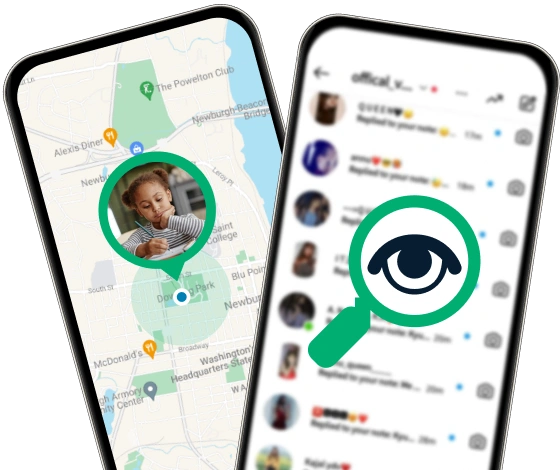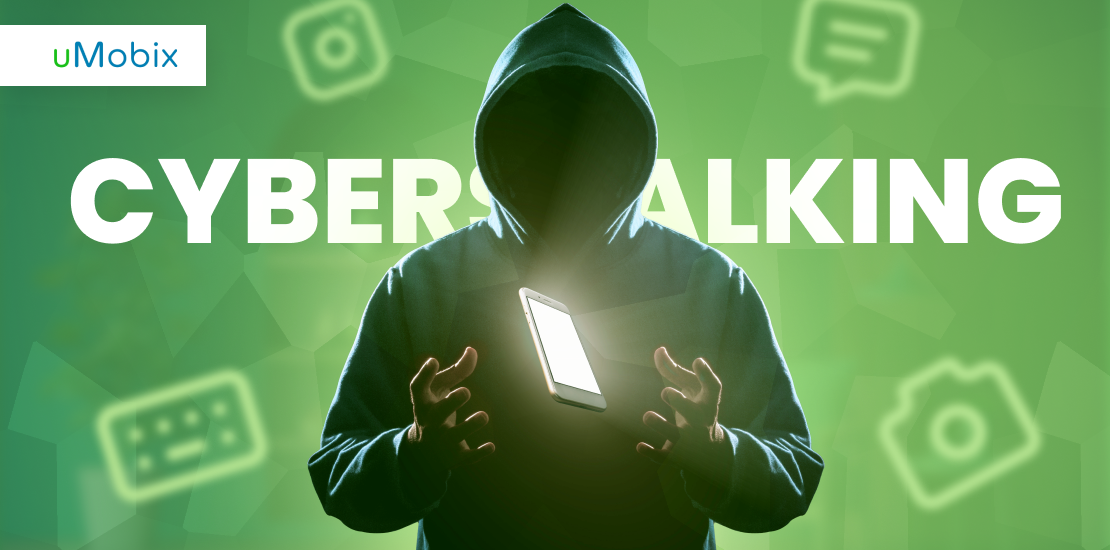Cyber crime (also written as cybercrime) involves any crime committed using a computer and a network. Cybercrimes often involve hacking, identity theft, or other acts of espionage. It’s estimated that 59% of Americans are victims of cyber hacking.
What makes cyber crime such a threat is that it’s constantly evolving and targets vulnerabilities in computers and the human mind.
Examples of Cyber Crime
As you can expect, a cyber criminal may commit many types of online crimes (as cyber crime investigators say). You may imagine cyber crimes involving a hacker hacking into a giant organization, but it tends to entail more. Let’s look at some examples.
Malware Attacks
One form of cyber violence that’s common is malware attacks. Malware (malicious software) describes worms, viruses, trojan horses, ransomware, and other dangerous applications that can damage one’s computer, steal their information, and more.
Phishing
Phishing is a practice where a criminal pretends to be an organization with the hopes of stealing your information. One example is when a criminal sends an email pretending to be your bank and asks you to re-enter your banking information for security purposes. In reality, it’s a criminal trying to access your bank account.
Distributed DoS Attacks (DDoS)
Distributed denial of service attacks (DDoS) involves a single IP source using compromised accounts or other methods to overwhelm the traffic of a single server. Its goal is usually to make a website crash for its users, intending to be malicious.
Common Types of Cyber Attacks
Now, let’s list some other types of cyber attacks you may encounter:
- MITM (man in the middle) attacks, where a hacker eavesdrops on a secure conversation or transaction
- Ransomware where a person’s system or information is stolen, and they must pay a ransom to get it back
- Password attacks, or an attempt to guess someone’s password, either by brute force or other methods
- URL interpretation, where an attacker creates website URLs designed to attack a person’s data
- DNS spoofing, where a hacker creates a fake website to trick the user
- Trojan horse, which is a virus disguised as a legitimate program
- Scareware, which is a phony popup scaring the user into performing a malicious action. For example, scareware may claim your computer has been compromised and give you a number to call a fake tech support center to purchase phony virus control software
- Spyware, which spies on its victims’ activity
- Worms, or a type of virus that targets exploits
- Any other kind of virus is a cyber crime
Also, we should mention cyberbullying. If you’re asking yourself, “Is cyberbullying a crime?” The answer is yes. In all 50 states, some laws are dedicated to fighting cyber bullying.
However, when most think of cyber crime, they tend to think of hacking, malware, or similar acts. Cyber bullying is an extension of bullying, while cyber crimes cover crimes that can only be done via a computer.
How to Protect Your Close Ones Against Cyber Crime
While it’s not possible to be 100% protected against cyber crime, there are some ways you can reduce the risk of it happening for you and your loved ones.
Always Update
Updates for your operating system and other applications can be tiresome. However, many updates fix exploits that cyber criminals use to attack you. In addition, an update may contain new security software that can protect your account. You can have updates occur automatically, but you should also check manually, as some optional updates can give you more protection.
Use Phone Monitoring Apps
If you have children, you might want to consider phone monitoring apps. These apps can inform you if your child is visiting a suspicious website and help keep them safe against people who may have bad intentions.
One example of an excellent phone monitoring app and parental control app is uMobix. This app enables you to view every activity on your child’s phone from various apps. You can also use it as a phone tracker to see where your child is and who they are talking to.
Many cyber criminals go after not only the rich and the elderly but the youth, who might be naive about how the Internet works. However, if you suspect any malicious activity using a phone monitoring app, you may end up saving your child.
Use and Update Your Antivirus Software
Here’s a common sense one. However, many people may have accidentally turned off their antivirus software. Keep it on and regularly scan it to ensure your computer is clean. In addition, update it whenever possible. Updated software can help protect you against the latest cyber crime technology.
In addition, you may want to consider more than one antivirus software. Windows has its own software, but using downloadable software like Malwarebytes may help you find something that slips under the radar.
Use Strong Passwords
Many websites have minimal requirements for your passwords nowadays, but the password you give may not be strong enough. In some instances, particularly with sensitive information such as your banking info, you may want a password that’s a random series of characters.
Using a password manager could help you manage these passwords and keep them safe and secure. In addition, a manager can help you have a unique password for each site, eliminating the need to remember them.
Enable Multi-Factor Authentication
Multi-factor authentication, also known as two-factor authentication, involves a second method of verifying your account when you log in. For example, if someone guesses your name and password, multi-factor authentication enables it so that the hacker needs your phone or email to confirm they are who they say they are.
Two-factor authentication is not foolproof, especially if the hacker has access to the victim’s email, but it can falter their plans.
Don’t Open Spam Email Attachments
For the most part, your spam folder does a great job at filtering spam. Some spam can be fun to look at, but never open an attachment unless it was from a legitimate website labeled a false positive. Spam attachments may contain malware.
If you’re unsure if an attachment is spam, you may want to scan it through a virus scanner before opening it. This way, you’ll avoid opening something you should not.
Avoid Clicking Suspicious Links
Avoid clicking any links if you’ve received a spam email or are on a suspicious website. These links may lead to you downloading malware. When in doubt, research the link to ensure that it is safe for you to use. For example, there are websites dedicated to scanning links and telling you if they are suspicious or not.
Avoid Giving Out Personal Information
Many people online like to overshare. If you reveal your real name, email, or other sensitive information, hackers may use it against you. In addition, you may want to avoid sharing photos that might contain personal information. Unless you know you’re giving out information in a secure area, avoid sharing it at all times.
Message a Company If You See a Suspicious Request from Them
Say you get an email from Amazon saying to re-enter your information or else they will delete your account. Chances are, this is a phishing email by a cyber criminal. Very rarely, if ever, will a company attempt to scare you by threatening to delete your account if they suspect something suspicious. However, contact the company for confirmation if you want to make sure.
Alternatively, some companies may already have a page about phishing. For example, your bank may have a page about being aware of phishing and show you example emails, some of which may match your email.
Look Into Each Suspicious URL You Visit
www.facebook.com is not a suspicious link. However, if you receive a shortened URL or a URL that looks legitimate but also has something off, be mindful of that. When you run into a suspicious link, investigate it.
For example, there are websites dedicated to checking suspicious links. You can enter the link, and it can tell you if it’s safe or not. However, it may be a suspicious link. You could open the link via a secure browser if you’re still unconvinced.
View Your Bank Statements
Often, attackers will try stealing your bank information. While banks may call about suspicious charges, some hackers know how to bypass their cyber crime prevention system.
Because of this, it does not hurt to check your bank statements, even if you feel like you have not been the victim of a cyber crime. If you spot something suspicious, send it to your local cyber crime reporting firm, attempt to dispute the charge, and change your banking credentials.
Final Words
As you may believe, cybercrime is serious, and you must protect yourself whenever you can. But, even if you feel as though you’re cautious, cyber criminals are always thinking of new ways to get their targets. The latest cyber scam can be something new that even you may fall for if you’re not careful.
FAQ
The best way to protect yourself is to avoid clicking on suspicious links and giving out sensitive information. In addition, running antivirus and updating all software is vital to safeguard against exploitable bugs.
In addition, you should keep up with the latest cyber security news. Read up on the latest threats. Read some cyber crime cases and cyber crime statistics. By educating yourself all you can about the crime web, you can stay informed.
One of the most common types of cyber crimes is phishing. Phishing involves stealing your personal information by pretending to represent a legitimate company. For example, a phisher may pretend to represent your bank and say that you must re-enter your login credentials through a specialized link.
If you receive an unprompted email (like you didn't request a password change), it's probably a phishing scam. If you're unsure, contact your bank or another company that claimed to be represented to confirm or deny if it was a scam.
If you feel like you’re the victim of a cyber crime, you should first change any passwords that may be compromised. Check your bank account information as well to ensure that nothing was stolen or changed. If something seems suspicious, file a dispute.
In addition, you will want to file a complaint with your local cyber police or cyber crime investigations office. Another method you can do is to contact the FBI, mainly if you are the victim of a significant cyber crime.

Latest posts
- 10 Best Apps for Parents to Monitor Social Media: 2026 Guide
- Complete List of Keywords to Block for Parental Control
- Does Telegram Notify Screenshots? Everything About Screenshot Detection
- How to Find Someone’s Deleted Instagram Posts: Complete Guide
- Family Tracking App by uMobix: Keep Loved Ones Safe




